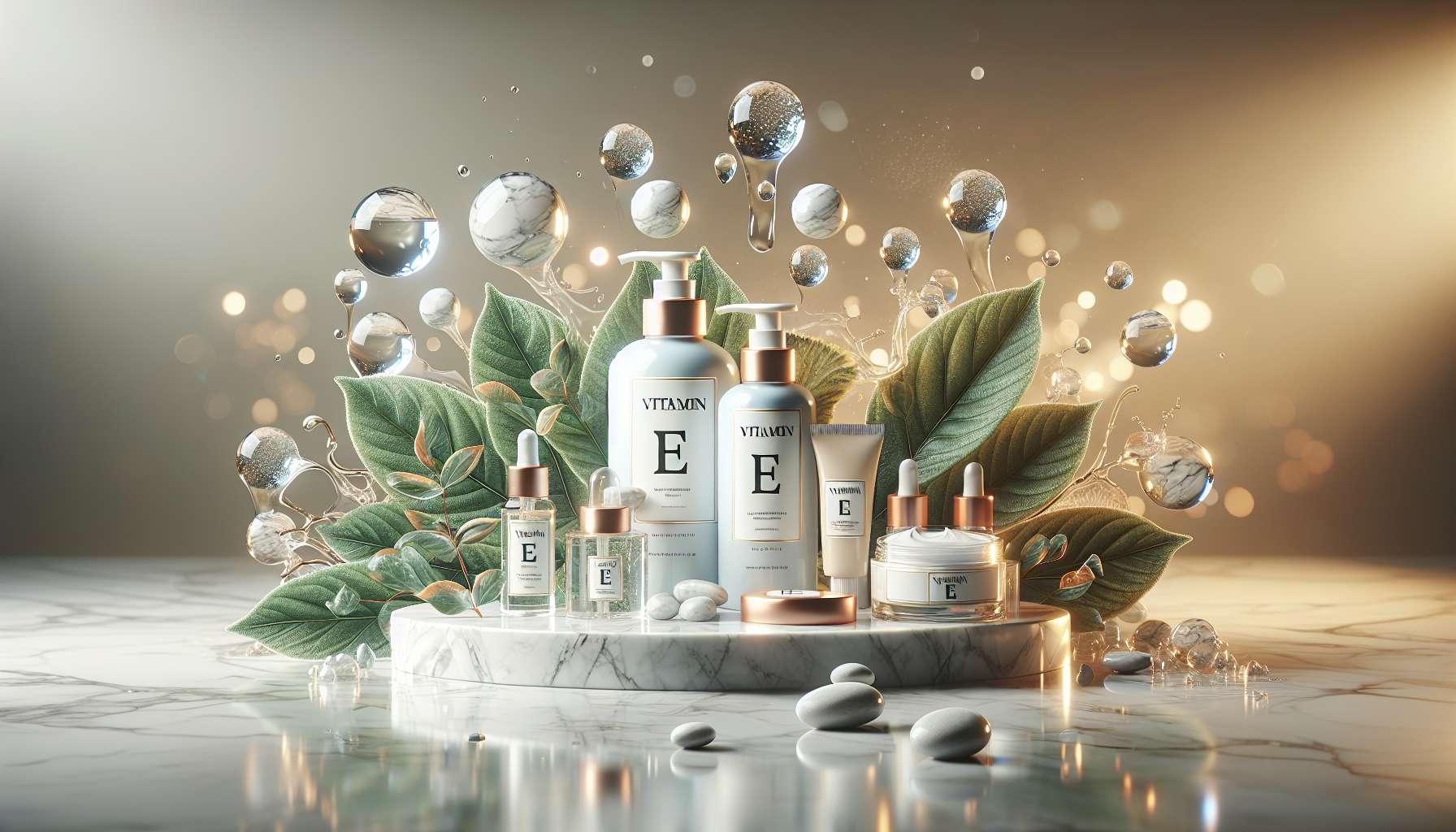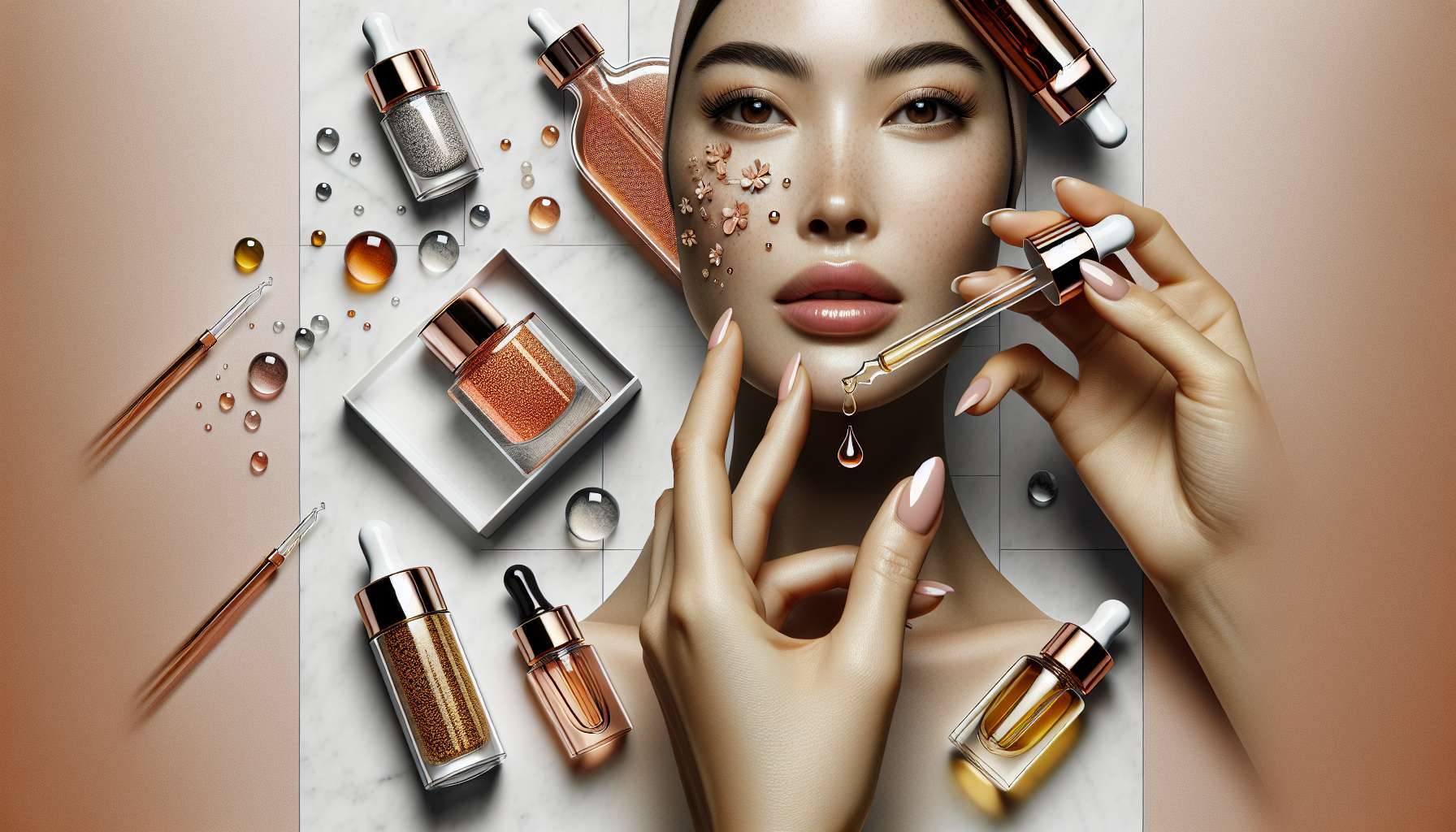Vitamin E in Skincare: The Ultimate Guide
When it comes to skincare, the world of beauty products can often feel overwhelming with countless options promising radiant, youthful skin. One ingredient that has stood the test of time and continues to be a staple in many skincare formulations is Vitamin E. Known for its antioxidant properties and skin-nourishing benefits, Vitamin E plays a vital role in maintaining healthy skin. In this comprehensive guide, we will delve into the world of Vitamin E in skincare, exploring its origins, benefits, applications, and the science behind its effectiveness.
The Origins of Vitamin E in Skincare
Vitamin E, also known as tocopherol, was first discovered in 1922 by researchers Herbert Evans and Katherine Bishop. They found that a dietary deficiency in Vitamin E led to reproductive issues in rats, highlighting the importance of this essential nutrient. Over time, Vitamin E’s skincare benefits became apparent, leading to its incorporation into various beauty products.
Today, Vitamin E is widely used in skincare formulations for its antioxidant properties, which help protect the skin from free radical damage caused by environmental factors like UV rays and pollution. In addition to its protective effects, Vitamin E also helps moisturize and nourish the skin, making it a versatile ingredient in the world of skincare.
The Benefits of Vitamin E in Skincare
One of the key benefits of Vitamin E in skincare is its antioxidant properties. Antioxidants help neutralize free radicals, which can damage skin cells and lead to premature aging. By incorporating Vitamin E into your skincare routine, you can help protect your skin from oxidative stress and maintain a youthful appearance.
In addition to its antioxidant effects, Vitamin E is also known for its moisturizing properties. Vitamin E helps strengthen the skin’s natural barrier, preventing moisture loss and keeping the skin hydrated and supple. This makes Vitamin E an excellent ingredient for those with dry or dehydrated skin.
Furthermore, Vitamin E has anti-inflammatory properties, making it beneficial for soothing irritated or sensitive skin. Whether you have redness, inflammation, or rosacea, Vitamin E can help calm the skin and reduce discomfort.
How to Incorporate Vitamin E into Your Skincare Routine
There are various ways to incorporate Vitamin E into your skincare routine, from using products that contain Vitamin E to incorporating it into your diet. One common way to benefit from Vitamin E is by using a Vitamin E serum or oil. These products are designed to deliver a concentrated dose of Vitamin E directly to the skin, providing maximum benefits.
You can also look for skincare products that contain Vitamin E as an active ingredient. From moisturizers and serums to masks and cleansers, Vitamin E can be found in a wide range of beauty products. Look for products that feature Vitamin E high on the ingredient list for optimal results.
In addition to topical application, you can also boost your Vitamin E intake through your diet. Foods rich in Vitamin E include nuts, seeds, avocado, and leafy greens. By incorporating these foods into your meals, you can support healthy skin from the inside out.
The Science Behind Vitamin E in Skincare
Research has shown that Vitamin E plays a crucial role in skin health. A study published in the Journal of Investigative Dermatology found that Vitamin E can help protect the skin from UV damage and reduce the signs of aging. Another study published in the Journal of Cosmetic Dermatology demonstrated that Vitamin E can improve skin hydration and elasticity.
Furthermore, Vitamin E has been shown to have anti-inflammatory effects, making it a valuable ingredient for those with inflammatory skin conditions like eczema or psoriasis. By reducing inflammation, Vitamin E can help calm the skin and improve overall skin health.
Expert Opinions on Vitamin E in Skincare
According to dermatologists and skincare experts, Vitamin E is a powerhouse ingredient that offers a wide range of benefits for the skin. Dr. Jessica Wu, a board-certified dermatologist, recommends Vitamin E for its antioxidant properties and ability to protect the skin from environmental damage.
Dr. Nina Roos, a skincare expert, also praises Vitamin E for its moisturizing effects and ability to improve skin texture. She recommends incorporating Vitamin E into your skincare routine to maintain healthy, glowing skin.
Common Misconceptions About Vitamin E in Skincare
One common misconception about Vitamin E in skincare is that it can clog pores and cause breakouts. While Vitamin E is an oil-soluble vitamin, it is non-comedogenic, meaning it is unlikely to cause breakouts or acne. In fact, Vitamin E can help balance oil production and keep the skin hydrated without clogging pores.
Another misconception is that Vitamin E is only beneficial for mature skin. While Vitamin E is known for its anti-aging properties, it can benefit skin of all ages. Whether you are looking to prevent premature aging or improve skin texture, Vitamin E can be a valuable addition to your skincare routine.
FAQs About Vitamin E in Skincare
1. Can Vitamin E be used on sensitive skin?
Yes, Vitamin E is suitable for sensitive skin due to its anti-inflammatory properties. However, it is always advisable to perform a patch test before using any new skincare product to ensure compatibility with your skin.
2. Can Vitamin E help fade scars?
Yes, Vitamin E has been shown to help improve the appearance of scars by promoting skin regeneration and healing. Regular application of Vitamin E oil or serum can help fade scars over time.
Conclusion
In conclusion, Vitamin E is a versatile ingredient with numerous benefits for the skin. From its antioxidant and anti-inflammatory properties to its moisturizing effects, Vitamin E plays a crucial role in maintaining healthy, youthful skin. By incorporating Vitamin E into your skincare routine, whether through topical products or dietary sources, you can support your skin’s overall health and appearance.
Remember, skincare is not a one-size-fits-all approach, and it is essential to find products that work best for your skin type and concerns. Experiment with different Vitamin E formulations to see what works best for you, and don’t be afraid to consult with a dermatologist or skincare expert for personalized advice.
Long story short, Vitamin E is a powerhouse ingredient that deserves a place in everyone’s skincare routine. So why wait? Start reaping the benefits of Vitamin E today and enjoy healthy, glowing skin for years to come.




